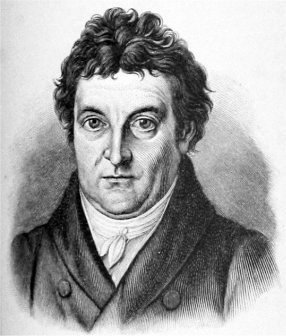Johann Gottlieb Fichte Frases y Citas
Johann Gottlieb Fichte: Frases en inglés
Addresses to the German Nation (1807), Second Address : "The General Nature of the New Education". Chicago and London, The Open Court Publishing Company, 1922, p. 21
Paraphrased variant: The schools must fashion the person, and fashion him in such a way that he simply cannot will otherwise than what you wish him to will.
Fuente: The Characteristics of the Present Age (1806), p. 16
Fuente: The Characteristics of the Present Age (1806), p. 20
Addresses to the German Nation (1807), Second Address : "The General Nature of the New Education". Chicago and London, The Open Court Publishing Company, 1922, p. 20.
Johann Fichte Letter to Johanna Rahn from Johann Gottlieb Fichte's popular works: Memoir and The Nature of the Scholar<!--pp. 14-15--> https://archive.org/stream/johanngottlieb00fichuoft#page/14/mode/1up
Fuente: The Vocation of Man (1800), P. Preuss, trans. (1987), p. 4
Consequences of the Difference p. 85
Addresses to the German Nation (Reden an die deutsche Nation) 1808, Fifth Address
Consequences of the Difference p. 75
Addresses to the German Nation (Reden an die deutsche Nation) 1808, Fifth Address
The Chief Difference Between The Germans And The Other Peoples Of Teutonic Descent p. 59
Addresses to the German Nation (Reden an die deutsche Nation) 1808, Fourth Address
General Nature of New Eduction p. 45
Addresses to the German Nation (Reden an die deutsche Nation) 1808, Third Address
“Education to true religion is the final task of the new education.”
General Nature of New Eduction p. 38
Addresses to the German Nation (Reden an die deutsche Nation) 1808, Third Address
General Nature of New Eduction contiunued p. 31
Addresses to the German Nation (Reden an die deutsche Nation) 1808, Third Address
General Nature of New Eduction p. 28
Addresses to the German Nation (Reden an die deutsche Nation) 1808, Second Address
General Nature of New Eduction p 21
Addresses to the German Nation (Reden an die deutsche Nation) 1808, Second Address
Introduction p. 9-10
Addresses to the German Nation (Reden an die deutsche Nation) 1808, First Address of Fourteen
Introduction p. 1
Addresses to the German Nation (Reden an die deutsche Nation) 1808, First Address of Fourteen
Fuente: The Way Towards The Blessed Life or the Doctrine of Religion 1806, p. 78
Fuente: The Way Towards The Blessed Life or the Doctrine of Religion 1806, P. 56
Fuente: The Way Towards The Blessed Life or the Doctrine of Religion 1806, P. 26-27
Fuente: The Way Towards The Blessed Life or the Doctrine of Religion 1806, P. 17
Fuente: The Characteristics of the Present Age (1806), p. 268
Fuente: The Characteristics of the Present Age (1806), p. 264
Fuente: The Characteristics of the Present Age (1806), P. 213-214
Fuente: The Characteristics of the Present Age (1806), p. 197
Fuente: The Characteristics of the Present Age (1806), p. 192
Fuente: The Characteristics of the Present Age (1806), p. 186
Fuente: The Characteristics of the Present Age (1806), p. 168
Fuente: The Characteristics of the Present Age (1806), p. 140
p, 122-123
The Characteristics of the Present Age (1806)
Fuente: The Characteristics of the Present Age (1806), p. 105
